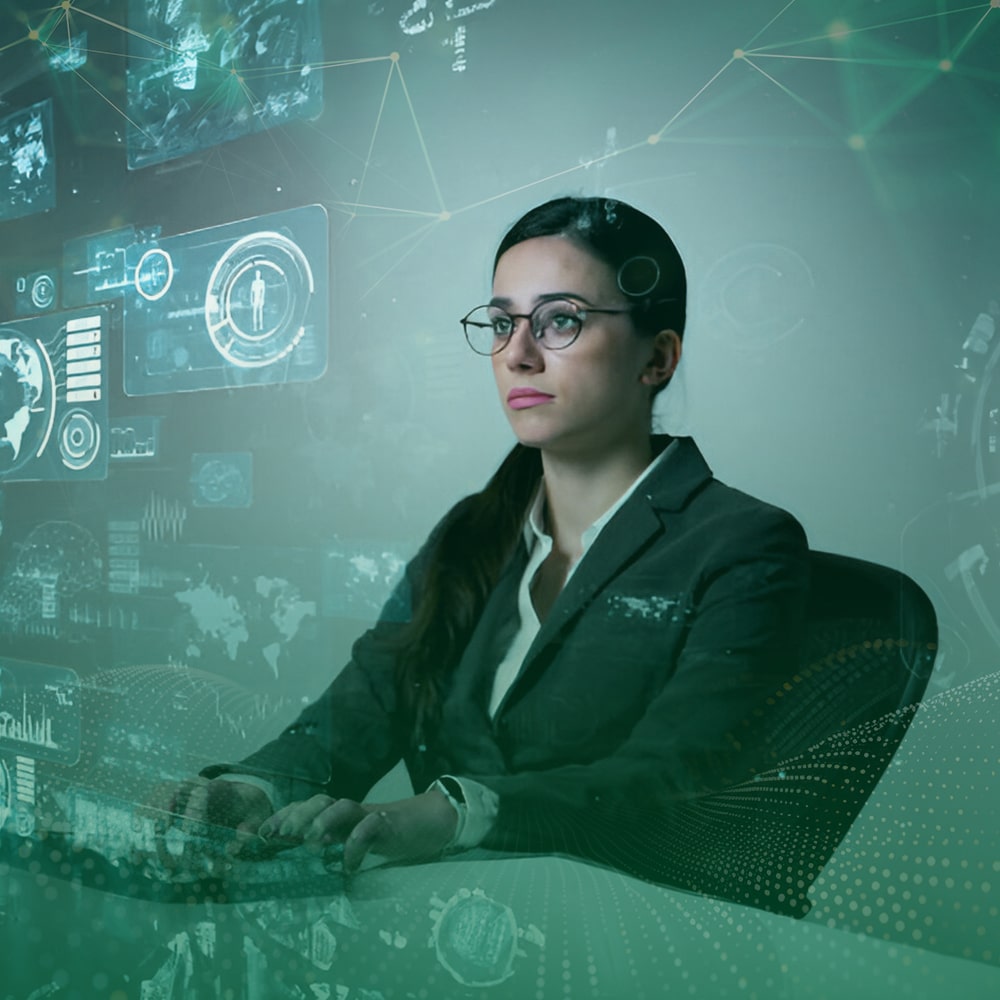
Andragogy and Generative AI: A Powerful Duo for Modern Learning and Development
August 30, 2024
Design Your E-Learning Course Using Gagné’s Nine Events Of Instruction
June 1, 2023
Andragogy and Generative AI: A Powerful Duo for Modern Learning and Development
August 30, 2024
Design Your E-Learning Course Using Gagné’s Nine Events Of Instruction
June 1, 2023AI & Lifelong Learning
Transforming Organizational Learning into a Dynamic & Personalized Experience
AI is transforming how organizations approach training and development. It has also presented employees and organizations with new challenges and possibilities for empowerment and exploration. Through the integration of AI into their learning programs, companies can deliver more efficient, personalized, and impactful experiences for their employees.
The Role of AI in Lifelong Learning
Although the term “Artificial Intelligence” first appeared in the 1950s, AI is finally coming into its own since last year when an unprecedented abundance of AI products and use cases were implemented at end-user level. According to the 2023 AI Index Report, over 62 countries have now implemented AI strategies, and the percentage of businesses implementing AI has doubled from the previous year.
In addition, the demand for AI has significantly increased over the last ten years. The days of developing talent as a one-off are long gone. Continual self-improvement is essential in today's fast-changing job market. AI plays a crucial role in this by offering personalized learning experiences. These experiences adapt to the evolving needs of the workforce.
How AI is Transforming Lifelong Learning for Employees
1. Personalized Learning Paths
One of the most significant ways AI is transforming lifelong learning is through personalized learning paths. AI can analyze a learner’s progress, preferences, and goals to create a tailored learning experience. This customization helps learners focus on the areas where they need the most improvement. As a result, the learning process becomes more efficient and effective.
For example, AI-powered platforms can recommend courses, modules, and resources tailored to each learner's unique needs. This ensures they receive the right content at the right time. With this personalized approach, learners can achieve their goals faster and with greater confidence.
2. Efficient Skill Development
AI enhances skill development by continuously monitoring a learner's progress and adjusting the content as needed. If a learner struggles with a concept, AI can provide extra resources or modify the course difficulty to ensure understanding before moving forward. This adaptive learning process allows learners to acquire new skills at their own pace, preventing them from feeling overwhelmed or disengaged.
3. Accessibility and Inclusivity
AI makes lifelong learning more accessible to a broader audience. Online platforms powered by AI deliver high-quality education to learners regardless of their location, making it easier for individuals in remote or underserved areas to access the resources they need. Additionally, AI-driven tools accommodate diverse learning styles and needs, thereby ensuring that everyone has an equal opportunity to benefit from lifelong learning.
AI-Driven Tools and Platforms for Lifelong Learning
1. Intelligent Tutoring Systems
AI-powered tutoring systems provide real-time feedback and guidance, simulating the experience of one-on-one instruction. These systems identify when a learner is struggling and offer targeted support to help them overcome challenges. This level of personalized attention helps learners build confidence and achieve optimum outcomes.
2. Adaptive Learning Platforms
Adaptive learning platforms use AI to adjust the difficulty of content based on learner performance. These platforms ensure that learners progress at their own pace, mastering each concept before moving on to more complex topics. This approach not only enhances understanding but also helps learners retain information more effectively.
3. Learning Analytics
AI is essential in learning analytics, where it analyzes data from learning activities to identify trends, predict outcomes, and optimize strategies. By using AI-driven insights, educators and learners can make informed decisions about their learning paths. This ensures they focus on areas that will have the most significant impact on their personal and professional growth.
The Role of Organizations and Stakeholders
Organizations play a crucial role in supporting AI-driven lifelong learning initiatives. By investing in the development and deployment of AI-powered learning platforms, companies can ensure that their employees enjoy access to the tools they need to succeed. Policymakers must also establish regulations that promote the ethical use of AI in education, thereby protecting learners’ rights and privacy.
Empowering Learners
Ultimately, AI has the potential to empower learners by giving them control over their learning journeys. With AI-driven tools, individuals can continuously upskill and reskill, ensuring they remain relevant in an ever-changing job market. This empowerment will be key to unlocking new opportunities for personal and professional growth, enabling lifelong learners to thrive in the future.
Ozemio utilizes the power of AI to transform lifelong learning, making upskilling more personalized, efficient, and accessible. As technology evolves, AI will become increasingly crucial in keeping individuals competitive in the global economy.
With Ozemio's AI-driven learning solutions, learners gain control over their education, preparing themselves for future challenges and opportunities with confidence. Reach out to our experts to explore your talent transformation goals.
Mitch Oatman has spent the last 30 years working with large global organizations helping them improve their corporate learning strategies, and optimizing work that can be accomplished with limited resources. During his career he has helped learning professionals focus on high impact learning interventions and collaborated with learning executives to engage in a model that fits with their priorities and in house learning talent structure.




